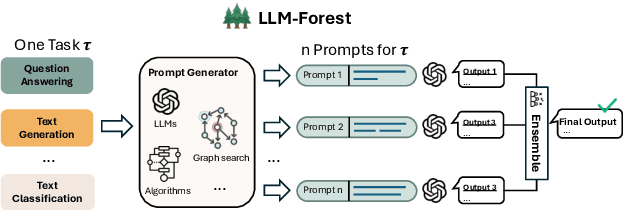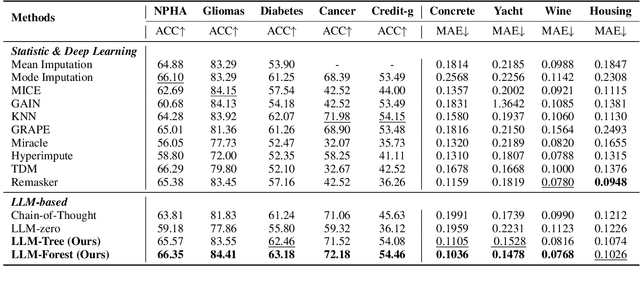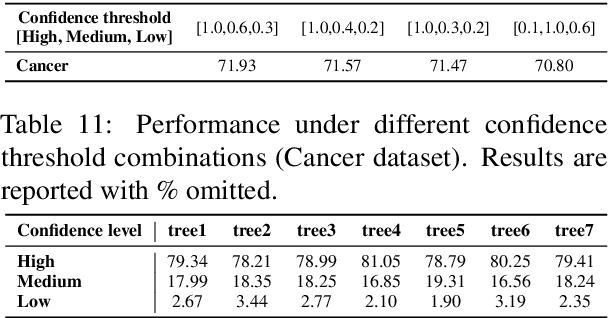LLM-Forest for Health Tabular Data Imputation
Paper and Code
Oct 28, 2024



Missing data imputation is a critical challenge in tabular datasets, especially in healthcare, where data completeness is vital for accurate analysis. Large language models (LLMs), trained on vast corpora, have shown strong potential in data generation, making them a promising tool for tabular data imputation. However, challenges persist in designing effective prompts for a finetuning-free process and in mitigating the risk of LLM hallucinations. To address these issues, we propose a novel framework, LLM-Forest, which introduces a "forest" of few-shot learning LLM "trees" with confidence-based weighted voting. This framework is established on a new concept of bipartite information graphs to identify high-quality relevant neighboring entries with both feature and value granularity. Extensive experiments on four real-world healthcare datasets demonstrate the effectiveness and efficiency of LLM-Forest.
 Add to Chrome
Add to Chrome Add to Firefox
Add to Firefox Add to Edge
Add to Edge